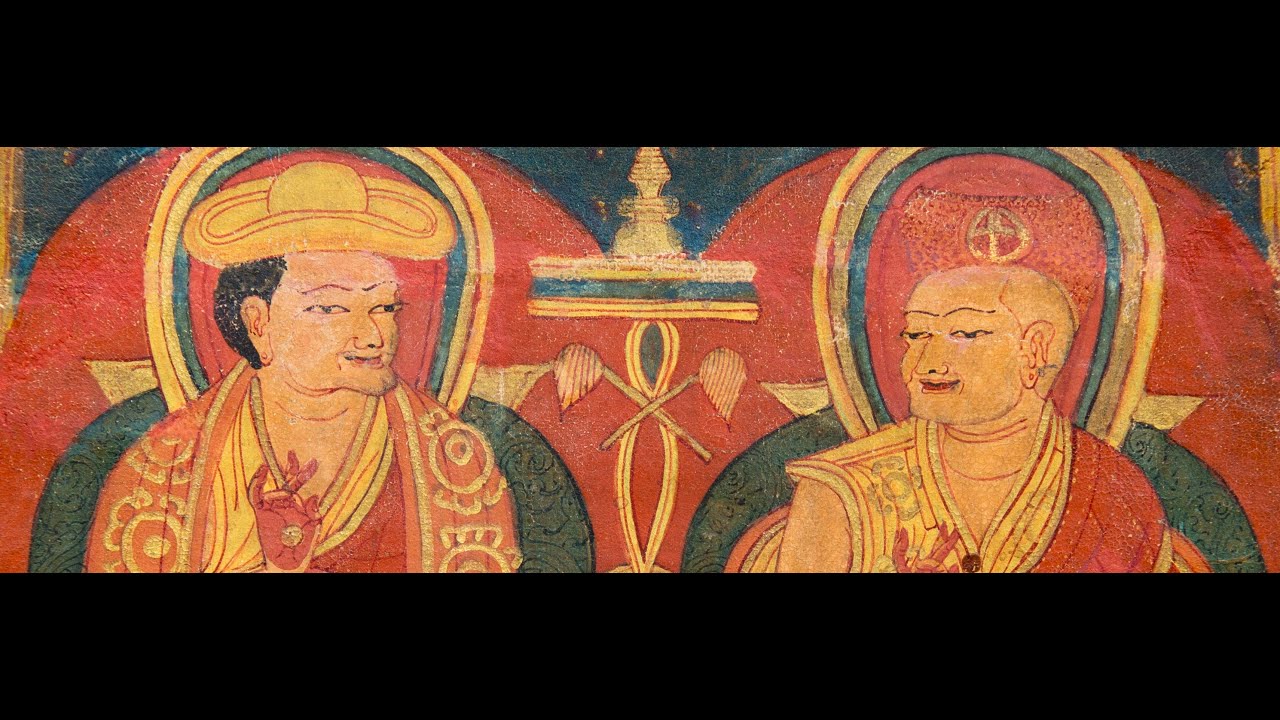
Buddhist Forum Lecture: Patsap Nyimadrak’s Classification of Buddhist Philosophical Systems

Key information
- Date
- Time
-
5:30 pm to 7:00 pm
- Venue
- SOAS Gallery, SOAS University of London
- Room
- B203
- Event type
- Lecture
About this event
This lecture will be on 'Patsap Nyimadrak’s Classification of Buddhist Philosophical Systems: The Svātantrika-Prāsaṅgika Distinction in Twelfth Century Tibet'.
Tibetan Buddhist doxographical literature named Drupta (grub mtha’; *siddhānta) provides us with a doctrinal classification of Indian Buddhist tenets. While the Tibetan way of distinguishing Buddhist scholastic systems helped us in understanding the features of and differences between the systems, the Tibetan retrospective assessment of Indian thought remained in doubt.
In the field of Madhyamaka studies, the Tibetan distinction between Svātantrika and Prāsaṅgika interpretations became a favorite subject. Later Tibetans attribute the origin of this distinction to Patsap Nyimadrak (pa tshab nyi ma grags; c. 1055–1145), a Tibetan Madhyamaka thinker and translator who introduced Candrakīrti’s (7th cent.) Madhyamaka treatises to Tibet. His works only became known in 2006, when the Collected Works of the Kadam School (bka’ gdams gsung ’bum) started to be published from Chengdu. Now we can access commentarial works written in his name on Nāgārjuna’s Mūlamadhyamakakārikā, Candrakīrti’s Prasannapadā, and Āryadeva’s Catuḥśataka, and we can confirm that in one of these works, the author indeed made a distinction between ranggyüpa (rang rgyud pa; *Svātantrika) and telgyurwa (thal ’gyur ba; *Prāsaṅgika), claiming himself to be a telgyurwa. But what did he intend when he distinguished these two positions of Madhyamaka philosophy?
I will address this question through an exploration of Patsap’s historical background. Because Patsap is said to have studied under the guidance of Indian scholars in Kashmir for twenty-three years, his assessment of Indian thoughts reflected the tendencies of his contemporaries rather than the retrospection of the past.
The Buddhist Forum is kindly sponsored by the Khyentse Foundation.
About the speaker
Chizuko Yoshimizu is Professor Emeritus of the University of Tsukuba, Japan, where she taught Buddhism and Tibetology for twenty-one years. She started to study Buddhism, Indian philosophy, and Tibetan intellectual history at the University of Tokyo and received her Ph.D. from the University of Vienna in 1994. Before and while teaching at the University of Tsukuba, she also lectured as a visiting scholar at the Universities of Tokyo, Kyoto, Hiroshima, Tohoku, Harvard, Berkley, UCLA, Vienna, and Hamburg. Currently, she leads a research group on Tibetology at Toyo Bunko (Oriental Library) in Tokyo.
Her main areas of expertise are Indian and Tibetan Buddhist philosophy, in particular, Madhyamaka and epistemology. She has been working on Sanskrit and Tibetan texts such as Candrakīrti’s Prasannapadā, Dharmakīrti’s Pramāṇavārttika, the Tibetan Madhyamaka works of Tsongkhapa (1357–1419), Patshap Nyimadrak (Pa tshab Nyi ma grags; ca. 1055–1145), and Zhang Thangsagpa (Zhang Thang sag pa, late 11th to 12th century). In collaboration with her colleagues, she published the edition of Zhang Thangsagpa’s dBu ma tshig gsal gyi ti ka from the Toyo Bunko.
Her recent publications in Madhyamaka studies are: “Transmission of the Mūlamadhyamakakārikā and Prasannapadā to Tibet from Kashmir.” Around Abhinavagupta. Aspects of the Intellectual History of Kashmir from the Ninth to the Eleventh Century. Eds. Eli Franco and Isabelle Ratié, Leipziger Studien zu Kultur und Geschichte Süd- und Zentralasiens 6. Leipzig, October 2016, pp.645-663; “Updating Prāsaṅgika and prasaṅga.” Journal of Indian and Buddhist Studies, vol.68, no.3, pp.87–93, March 2020; “The negation of arising from other in the Mūlamadhyamakakārikā and beyond,” Eds. V. Eltschinger, J. Kramer, P. Patil, C. Yoshimizu, Burlesque of the Philosophers. Indian and Buddhist Studies in Memory of Helmut Krasser. Hamburg Buddhist Studies Series 19, Bochum/Freiburg: projekt verlag 2023, pp. 861–893.
Attending the event
This event is free and open to all.
- Organiser: SOAS Centre of Buddhist Studies
Image credit: Early Kadam School scholar; private collection, c. 1300


